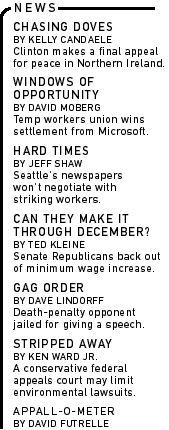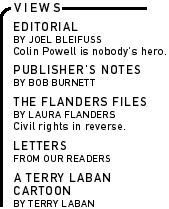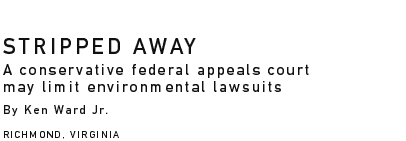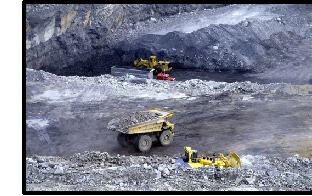 
|

|

|

|
| |
|
|
|
A year ago, a landmark federal court ruling to limit the ability of coal companies to blow up mountains and bury streams was under attack in Congress. West Virginia Sen. Robert C. Byrd was pushing to overturn the ruling by Judge Charles H. Haden, but eventually lost his fight. But now the ruling faces another, even bigger challenge. Coal operators, West Virginia regulators and mine workers appealed Haden's decision to the Fourth U.S. Circuit Court of Appeals in Richmond. The appeal puts the fate of the ruling in the hands of a group of judges that the New York Times dubbed, "the boldest conservative court in the United States." This is the court that tried to throw out the Miranda decision and said the Food and Drug Administration couldn't regulate nicotine as a drug. The Fourth Circuit rarely grants new hearings in death penalty cases and is more than willing to let states limit abortion rights. Judging from the tone of the oral arguments heard on December 7, a three-judge panel of that
At the center of the case is the destructive strip-mining technique dubbed "mountaintop removal" (see "Missing Mountaintop," December 12, 1999). Coal operators use explosives to blow off entire hilltops to uncover valuable, low-sulfur coal reserves. Huge shovels and bulldozers dump leftover rock and dirt--what used to be the mountain--into nearby valleys, burying streams under waste piles known as "valley fills."
|


